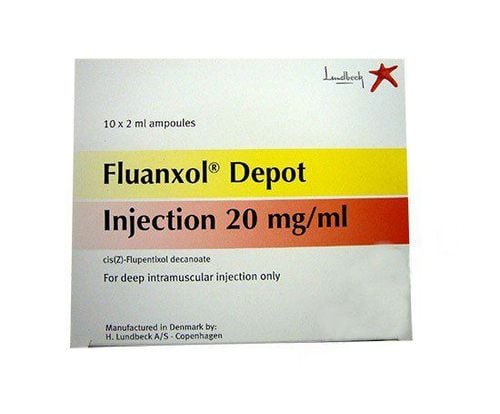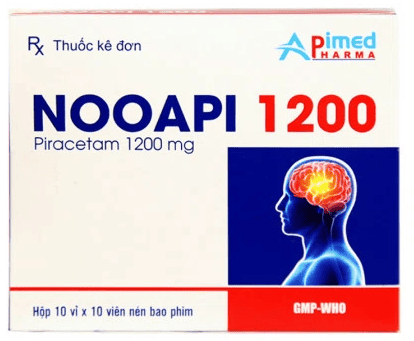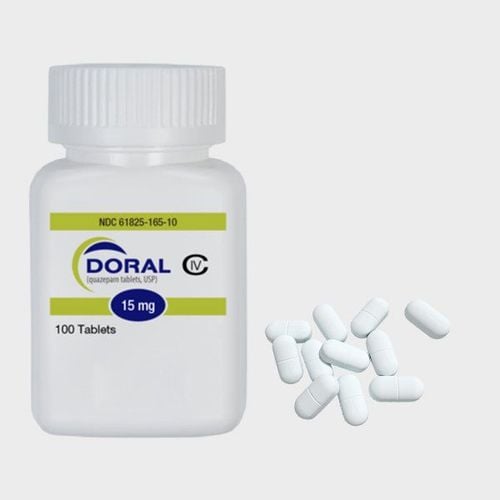This is an automatically translated article.
Bipolar anxiety disorder is a mental illness that causes extreme psychological transitions from excitement and happiness (manic or hypomanic) to sadness and pessimism (depression). This psychological shift affects rest, energy, behavior, as well as the ability to see and think through things.In a depressive state, the patient may feel depressed, hopeless, and lose interest or pleasure in most activities. In a manic (or hypomanic - less severe) psychological state, the person easily feels elated, energetic, active or excited. This psychological transition between the two extremes of sadness and joy will affect your ability to rest, energy, behavior, alertness, ability to see and think through things.
Mood swings usually occur one or more times a year. Some patients may experience emotional symptoms during these transitions.
Although a definitive cure for bipolar disorder is not possible, patients can improve their psychological transition and other symptoms by sticking to a treatment plan. In the vast majority of cases, bipolar disorder will be treated with medications and specialist psychotherapy (psychotherapy).
1. Types of Bipolar Anxiety Disorder
There are several types of bipolar anxiety disorder that include mania (severe and mild) and depression. Their symptoms are often unpredictable psychological and behavioral changes that make it difficult to integrate into daily life.Bipolar disorder type 1: The patient will experience a manic episode, possibly after experiencing episodes of hypomania or depression. In some cases, this manic episode can trigger psychosis, disrupting thinking and cognition. Bipolar disorder type 2: The patient will experience at least one depressive episode and one hypomanic episode and the absence of mania (severe episode). Cyclical mood disturbances. For at least 2 years for adults or 1 year for children and adolescents, the patient will experience multiple episodes of mild manic or depressive symptoms. cause. Other types of disorders may include bipolar anxiety disorder caused by the use of certain drugs and alcohol, triggering medical conditions such as Cushing's syndrome, multiple sclerosis, or stroke. stroke . Bipolar 2 disorder is not a mild form of bipolar 1 disorder at all and is diagnosed separately. While manic-depressive episodes in form 1 of bipolar disorder can be extremely severe and immediately life-threatening, in type 2 the person will experience manic-depressive episodes. sensitive for a longer period of time and cause serious mental and physical impairment.
Bipolar anxiety disorder can affect people of any age, but is most common in adolescents and young adults between the ages of 20 and 24. Symptoms vary from patient to patient and may change over time.
2. Signs of Bipolar Disorder
Anxiety disorders present inconsistently with most patients. Some of the symptoms can also be similar to other medical conditions, making diagnosis more difficult.The key signs that help define bipolar anxiety disorder can be divided equally between mania and depression.
2.1. 7 Symptoms of Mania Despite causing other symptoms, mania can be identified by the following 7 key signs and symptoms:
Feeling extremely euphoric and happy during periods of time. Long-term need for rest is markedly reduced Speaks very quickly with racing thoughts Always feels restless, energetic Easily distracted, difficult to concentrate Overconfidence in one's abilities Attitude Risky levels such as the desire to have sex, gambling beyond financial limits, spending money profligately. 2.2. 7 Signs of Depression Like mania, depression can cause many other symptoms. But here are 7 typical signs and symptoms that help people identify this condition:
Feeling depressed or hopeless for a long time Withdrawal from friends and loved ones Loss of interest in activities loved by the patient Loss of appetite Fatigue, lack of energy Problems with memory, concentration and decision-making Obsessions with death, constant thoughts about suicide or suicide intention to take this action.

Bệnh rối loạn lo âu lưỡng cực là bệnh lý tâm thần
3. Mania and hypomania
Severe mania and hypomania are two separate emotional states that share the same symptoms. Severe mania is more severe than hypomania and causes many negative effects on work, school, social activities, and relationships. Mania can also cause a person to fall into a psychotic state (requiring hospitalization for treatment).Each episode of major or minor mania is accompanied by at least three of the following symptoms:
Feeling euphoric, euphoric or jittery Hyperactivity Enhancing feelings of happiness and self-confidence Needs less rest Talks more than usual Fast-paced thinking Easily distracted and distracted Actions become ill-advised, such as extravagant shopping, risky sex, or risky investments foolish.
4. Severe depressive episode
A major depressive episode includes symptoms that are so severe that they interfere with daily functioning, such as work, school, social functioning, or relationships. A major depressive episode will include at least 5 of the following symptoms:Feeling sad, empty, hopeless, and crying easily (in children and adolescents, depressive mood) will make the patient irritable). Loss of interest and pleasure in most activities. Severe weight loss without following any diet, weight gain, or increased or decreased appetite (in children, failure to gain weight is also considered a sign of depression). Insomnia or sleeping too much. Feeling jittery or sluggish. Tired body, exhausted energy. Feeling worthless, redundant, or guilty. The ability to concentrate thoughts and make decisions becomes impaired. Showing signs of thinking or intending to take their own life.
5. Other characteristic manifestations of bipolar anxiety disorder
Bipolar anxiety disorder types 1 and 2 also have other characteristic symptoms such as anxiety exhaustion, depressed mood, psychosis, etc. The timing of symptoms can be used to diagnose diagnostic labelling, such as identifying alternating or sequential re-conversion of manic-depressive episodes. In addition, the symptoms of bipolar disorder can appear during a woman's pregnancy or change with the seasons.6. Symptoms of Bipolar Disorder in Children and Adolescents
It is difficult to identify the symptoms of bipolar anxiety disorder in children and adolescents, as they can be simply the joys and sorrows of everyday life, life pressures, trauma. mental illness or symptoms caused by other health problems.The presentation of major depression, major or minor mania in children and adolescents can also be very different from other age groups. The patient's mood will change rapidly between manic/depressive episodes. In some cases, the patient did not show any psychological symptoms between manic/depressive episodes.
The main symptoms of bipolar disorder in children and adolescents are unusually severe psychological transitions.
7. When should a patient see a doctor?
With the exception of extreme psychological transitions, patients with bipolar disorder will often be unaware of the negative impact that psychological instability has on their daily lives and those of others. around. Therefore, they often do not seek professional help.Some people may enjoy the euphoria and excitement that manic episodes cause. However, this excitement will not last long and always leads to a mental breakdown that causes them to fall into a state of depression, run out of energy, thereby causing them to encounter financial and legal troubles. and affect relationships.
If you feel yourself experiencing any of the signs and symptoms of mania or depression, you should see a mental health practitioner.
8. When does a patient need help quickly?
Patients with bipolar disorder often have thoughts and actions related to suicide. If the patient is intending or performing self-harm, everyone around should contact the doctor for emergency help.Patients with bipolar disorder should be closely monitored for suicidal thoughts. Call the emergency lines for guidance and help. If things are still within the helper's control, get the patient to the emergency department as quickly as possible.

Chữa trị dứt điểm bệnh rối loạn lo âu lưỡng cực là không thể
9. Complications
If not treated in time, bipolar disorder can have serious consequences that affect the patient's entire life, such as:Problems related to the use of alcohol Alcohol and drugs Self-destruction or suicide Having financial and legal problems Negative impact on relationships The ability to study and work becomes stagnant, impaired
10. Co-existing medical conditions with bipolar disorder
Bipolar disorder can co-occur with other medical conditions, and the person will need to treat them simultaneously to get the most out of the treatment. Here are some examples of conditions that co-occur with bipolar disorder:Anxiety disorders Eating disorders Attention-deficit/hyperactivity disorder (ADHD) Alcohol problems and stimulants Physical health problems such as heart disease , thyroid disease , headaches or obesity .
11. Prevention
There is currently no guaranteed way to prevent bipolar disorder. However, the medical community recognizes that treatment right from the first signs and symptoms of the disease will make a significant contribution to preventing bipolar disorder as well as helping to improve mental health conditions. another god.If diagnosed with bipolar disorder, the patient can take the following steps to avoid a negative impact on their quality of life.
Pay attention to the warning signs of illness: Identifying symptoms at their onset will help reduce the severity of manic/depressive episodes. The patient can identify a manifestation of manic/depressive episodes and the cause that triggers it. Tell your doctor right away if you feel you are gradually experiencing a manic/depressive episode and keep family members and friends up to date on your symptoms. Avoid alcohol and stimulants: This will help improve symptoms and make them harder to return. Use the drugs exactly as prescribed and do not stop the treatment without the permission of the doctor. Stopping the medication or reducing the dose on your own may cause symptoms to return or become worse. In case you suspect that you or a loved one has signs of depression, you need to seek help and advice from a doctor to get treatment and avoid the bad consequences that the disease causes.
Psychology - Vinmec International General Hospital has the function of examining, consulting and outpatient treatment of psychological problems and psychological health. With modern equipment, skilled doctors, combined with the implementation of psychological tests, intensive psychotherapy for diagnosis and treatment, Vinmec will bring good medical examination and treatment results. best for the patient.
Please dial HOTLINE for more information or register for an appointment HERE. Download MyVinmec app to make appointments faster and to manage your bookings easily.
References: healthline.com, mayoclinic.org, verywellmind.com












